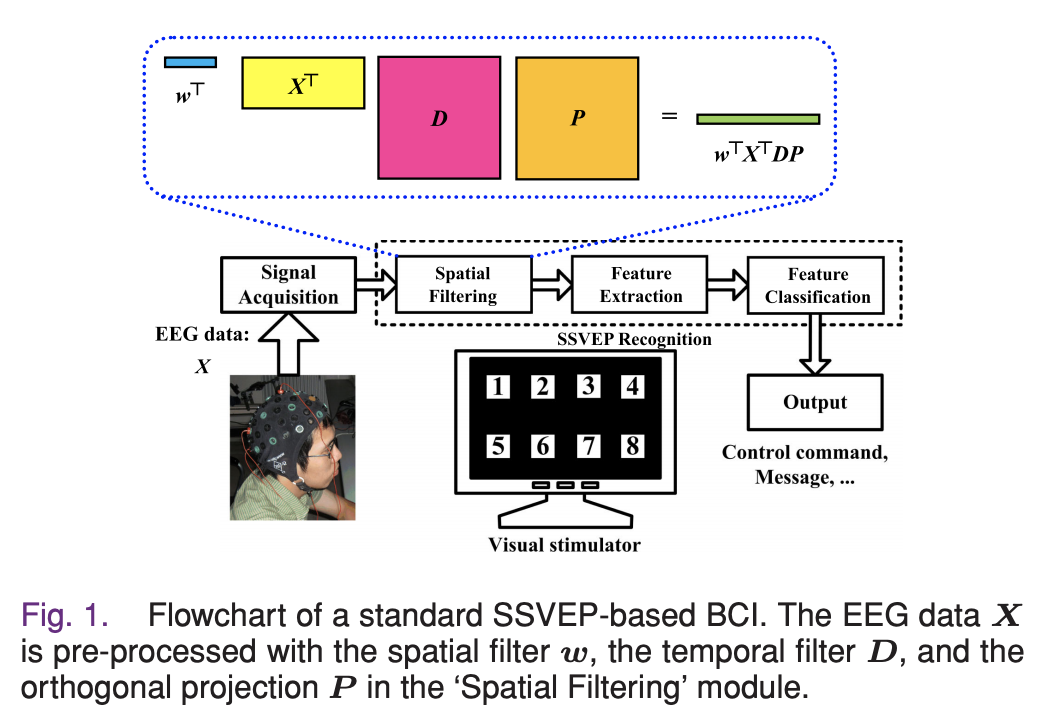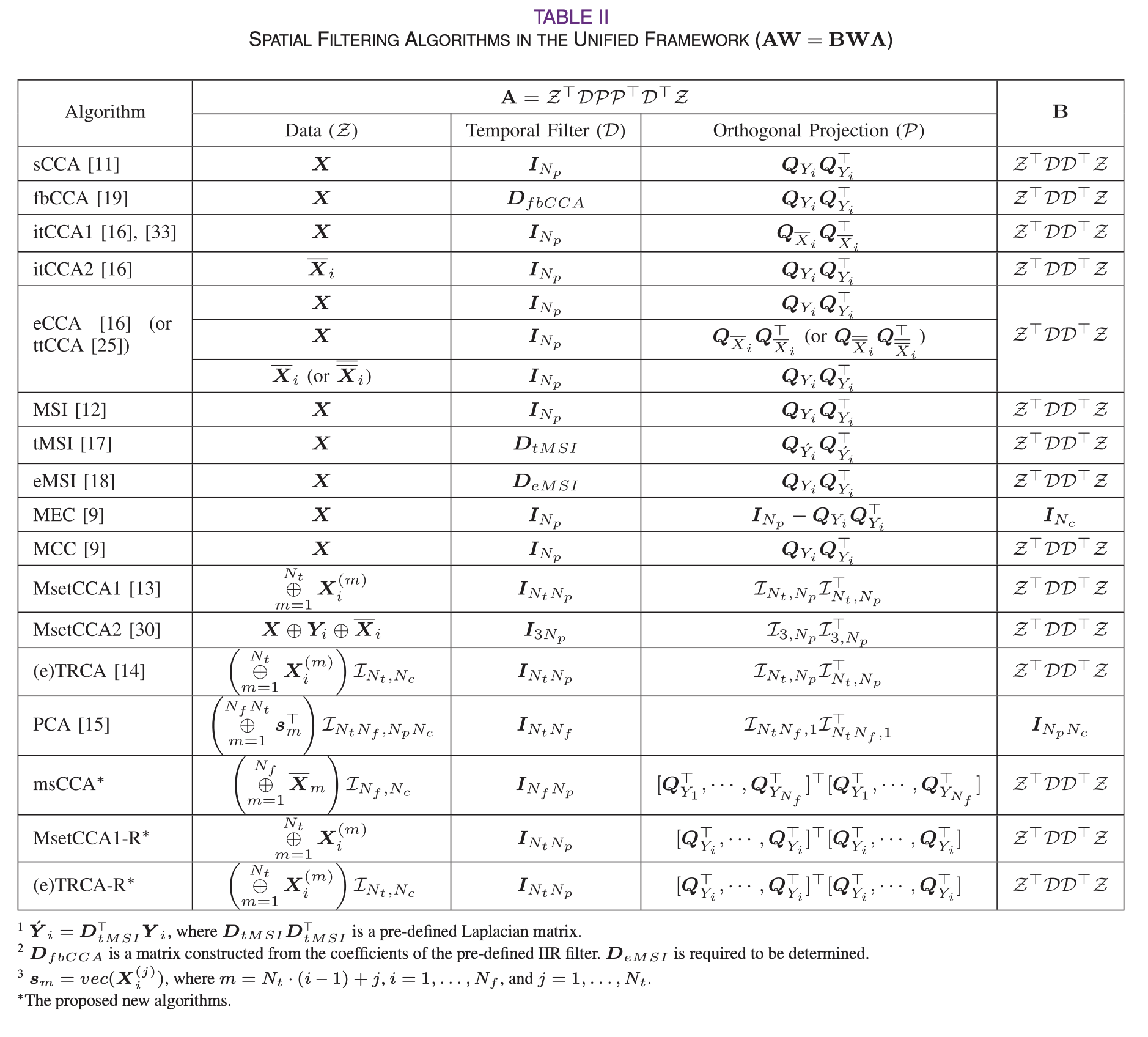Spatial Filtering in SSVEP-Based BCIs: Unified Framework and New Improvements
jinglescode opened this issue · 0 comments
jinglescode commented
Paper
Link: https://ieeexplore.ieee.org/abstract/document/9006809
Year: 2020
Summary
- described popular CCAs techniques (itCCA, eCCA, Transfer Template CCA, Filter Bank CCA, Task-Related Component Analysis)
- a unified framework under which the spatial filtering algorithms can be formulated as generalized eigenvalue problems (GEPs) with four different elements: data, temporal filter, orthogonal projection and spatial filter
- design new spatial filtering algorithms
Learnings
Results
- evaluate all the aforementioned spatial filtering algorithms on two different SSVEP datasets
- ttCCA and the fbCCA can provide the outstanding accuracy in most cases among the calibration-free algorithms
- eTRCA algorithm
can achieve the best performance, which may be owing to the fact that: i) it utilizes the variance of multi-trial calibration data to find the spatial filters, and ii) it utilizes the variance of the spatial filters corresponding to different frequencies via the ensemble of spatial filters in the feature extraction part - calibration-free algorithms are incapable of recognizing the subject-specific phase feature due to the fact that the spatially filtered data have ambiguous phase features in the feature extraction part, if the spatial filters are not learned under the phase constraint
- calibration-based algorithms can obtain the superior performance at the expense of calibration. They can learn from the calibration data to generate the subject-specific spatial filters and SSVEP templates which conform to the subject-specific phase features
- If this subject does not want to take the calibration, either the fbCCA or the ttCCA (when there is a lot of calibration data from other subjects) is suggested. If the subject can take the calibration, e.g., a long calibration, it is suggested to choose either the eTRCA-R or the eTRCA. If only a small calibration is preferred, the msCCA is strongly recommended

